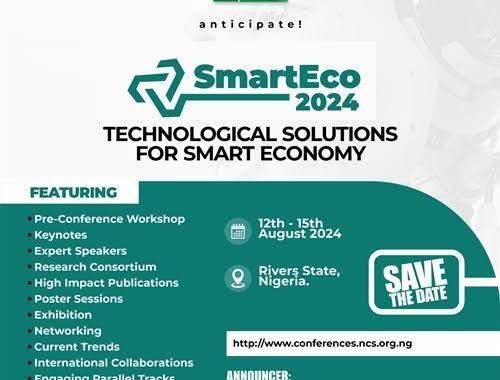At the present time, information and communication technologies and their implementations influence different spheres of human activity, and their dissemination around the world is much faster than any previous innovations. Therefore, the need to encourage the establishment of the digital economy cannot be overemphasised by any country. This article explores what Digitalisation means, its necessity for developing economies, digital skills empowerment initiatives such as Skillup Imo Cohort 3, and the challenges posed by technology. What is Digitalisation? The United Nations defines Digitalisation as the integration of digital technologies across the aspects of society: communication, commerce, governance, education, and healthcare. It spans from capturing information and digitising it to automating activities and creating new business solutions. Read moreMinistry floats Skillupimo challenge As for the initiatives in the field of Digitalisation and digital competencies, it can be stated that they have great potential for the development of the economies of the developing world, including Nigeria, promotion of employment, and the increase in the quality of public service. What is a Digital Economy? Basically, the Digital Economy means buying & selling products and services across national borders that have been facilitated by information technology. Digital economy also known as New Economy is an economy in which digital computing technologies are a part of the economic processes. It marks a change from conventional economic activities to those that are very dependent on digital tools and the Internet. There are three main components of the digital economy: Read moreSoon, Imo will be Africa’s Digital Hub – Dr Chimezie Amadi1.E-business Infrastructure: This involves all the physical and non-physical infrastructure required for the conduct of digital economic operations such as the underlining hardware and software infrastructure, telecommunication infrastructures and skilled manpower. It entails a foundation upon which organisations are enabled to run their operations within a digital setting. It includes everything from the Internet and servers for fast connection to unique software and qualified IT specialists. 2.E-business: This aspect focuses on the manner in which business processes are carried out virtually. It covers any activities a firm performs over computer-based networks like e-marketing, electronic commerce, virtual supply chain, and electronic customer relations. E-business liberalises conventional business practices making them faster and frequently more involving to the buyer. 4.E-commerce: E-commerce in particular is a form of electronic business that easily involves the purchasing and trading of products or services via a computer and the World Wide Web. An example of e-commerce includes buying a book through the Internet through such sites as Amazon. E-commerce has altered the way that people shop providing an easy and sometimes cheaper route to purchase. These components together help facilitate most of the activities happening in digital commerce, helping banking to be done online or innovations that are connected with the marketing done online, etc, that aid the growth and development of the economic system. The Need for Digital Economies in Developing Nations Read morePRIVATE SECTOR SUPPORT: IMO DIGITAL ECONOMY INITIATIVE RECEIVES BOOST.Another aspect constituting the phenomenon of globalisation is the transition to a new type of economy tied to networked digital technologies, which is important for the development of the countries of the Third World. Digitalisation goes beyond merely having a Facebook account or merely owning a smartphone; it entails the use of Digital considerations to come up with new business models, redesign business processes, and improve people’s access to information as well as services. Thus, the digitalisation scenario is diverse, and developing countries can join two extremes – urban and rural areas, providing e equal opportunities and stimulating the growth of inclusive economies. Take China, for example. The Asian giant has seen e-commerce growth like no other, with players such as Alibaba and JD. Com becoming global powerhouses. Mobile payment platforms such as WeChat Pay have brought a very new style of financial inclusion in today’s world, and in many parts, they have spread their roots and services up to the village level where the normal banking sectors have not been extended up to that level. Such advancements are a clear indication of how digitalisation leads to the creation of jobs, the enhancement of innovation, and the enablement of citizens. However, being an enabler of digital economies, the concept of digital commodities is not limited to purchase and sale. Digital skills and tools can eliminate educational disparities because they ensure students in areas that may not be easily accommodated in regard to online learning tools and resources have easy access to the sources they require. Telemedicine delivers medical services in areas with few physicians, which is viable with e-government efficiency indexes affecting transparency. In sub-Saharan Africa, for instance, the level of innovation of mobile money has significantly enhanced financial transactions, whereby millions of people conduct payments transactions without facing the necessity of opening accounts in banks. Mobile money transactions form a massive 24% of the region’s Gross Domestic Product, contrary to a paltry 5% globally. The area has also been the pioneer in the digital sector, overshadowing the various activities in the fintech sector and effectively producing new services and apps. However, reaping the benefits of Digitalisation hinges on one crucial factor: DIGITAL SKILLS. Skilling Up for the Digital Age Digital literacy enables its workforce to embark on a discovery of the new world on the Internet, and learn how to use the new tools profitably, and participate in the new economy on the net. Perceiving such a necessity, most of the developing countries are coming up with unique strategies to solve the problem of the digital gap. Nigeria which is the most populous black nation in Africa, is a manifestation of this. The current SkillUp Imo Cohort 3 is a program by the Imo State government, supported by the Federal Ministry of Communications, Innovation, and Digital Economy under the leadership of governor Hope Uzodinma to train the youths who are out of employment with relevant digital skills such as web development, social marketing, data analyst among others. This initiative, which engages the strategic empowerment of youths in the State to







